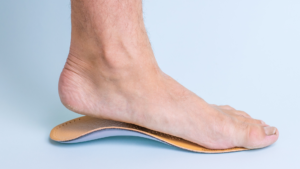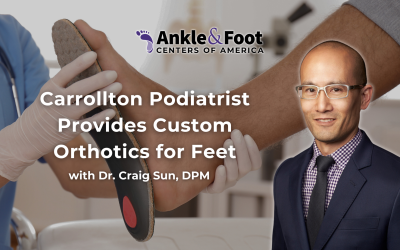Table of Contents
Introduction
Flat feet, a common condition affecting people of all ages, occur when the arches of the feet collapse, leading to a flattened appearance. While often painless, flat feet can cause discomfort and affect one’s overall mobility. Recognizing the significance of proper care, individuals with flat feet in Nashville, TN, are fortunate to have access to the expertise of Dr. Matthew King, a distinguished specialist dedicated to addressing the complexities of this condition. 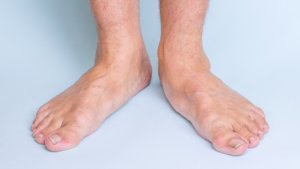
Flat feet are more prevalent than one might think, affecting approximately 20-30% of the population. This condition can manifest at any age, from childhood into adulthood, and may result from a variety of factors, including genetics, injury, or overuse. While some cases of flat feet may not cause immediate concern, seeking specialized care becomes crucial when discomfort or mobility issues arise. A flat foot specialist can provide accurate diagnosis, personalized treatment plans, and valuable guidance to enhance the quality of life for individuals grappling with this condition. In the heart of Nashville, TN, Dr. Matthew King stands out as a leading specialist in flat feet and related conditions. With a wealth of experience and a commitment to patient-centered care, Dr. King has become a trusted figure in the community, offering expertise and compassion to those seeking relief from the challenges of flat feet. This article will delve into the intricacies of flat feet, the role of a specialist, and why Dr. Matthew King is the go-to expert in Nashville for addressing this common yet impactful condition.
Understanding Flat Feet
Flat feet, or pes planus, is a condition characterized by the loss or partial collapse of the arches on the inside of the feet. Typically, the foot has a natural arch that provides support and helps distribute body weight evenly. However, in individuals with flat feet, this arch either diminishes or disappears, causing the entire sole of the foot to make contact with the ground.
Understanding the Arch
The arch of the foot plays a crucial role in absorbing shock, stabilizing the body, and facilitating smooth movements during activities like walking or running. This arch is maintained by a complex interplay of tendons, ligaments, and bones. In cases of flat feet, this intricate structure weakens, leading to an altered biomechanical function of the foot.
Different Types of Flat Feet
Flat feet can manifest in various forms, and understanding these distinctions is vital for accurate diagnosis and appropriate treatment. There are flexible flat feet, where the arch appears only when the person is not standing, and rigid flat feet, where the arch is consistently absent. Additionally, acquired flat feet can develop over time due to factors like aging, obesity, or injury, while congenital flat feet are present from birth.
Impact on Biomechanics
When the arches collapse, the normal biomechanics of the foot are disrupted. This can result in over pronation, a condition where the foot rolls excessively inward, affecting the alignment of the lower limbs. Over time, this altered gait can lead to discomfort, pain, and potentially contribute to issues in other parts of the body, such as the knees, hips, and lower back.
Associated Conditions
Flat foot can be associated with other foot conditions, including plantar fasciitis, tendonitis, and bunions. Understanding these potential complications is crucial for a comprehensive approach to treatment.
Common Causes and Symptoms
Flat feet, a multifaceted condition, can be attributed to a variety of causes, and its presentation can manifest through a spectrum of symptoms. A detailed exploration of these factors is essential for a comprehensive understanding of the condition.
Genetic Predisposition
A significant factor contributing to flat feet is genetic predisposition. If individuals have a family history of flat feet, there is an increased likelihood of inheriting the condition. Genetic factors can influence the structure and strength of the tendons and ligaments that support the foot arches, making some individuals more susceptible to the development of flat feet.
Weak Arch Development in Childhood
During childhood, the arches of the feet are still developing. Insufficient arch development, whether due to genetics or other factors, can result in flat feet. Children with flat feet may not experience immediate symptoms, but it becomes crucial to monitor their foot development and address any concerns to prevent potential issues in adulthood.
Foot and Ankle Injuries
Trauma or injuries to the foot and ankle can contribute to the development of flat feet. Fractures, sprains, or other injuries that affect the supporting structures of the foot can alter its biomechanics, leading to a collapse of the arches over time.
Age-Related Changes
As individuals age, the natural wear and tear on the tendons and ligaments that support the arches can result in a gradual flattening of the feet. This age-related change may be accompanied by a loss of muscle tone and elasticity, further contributing to the development of flat feet.
Symptoms of Flat Feet
Pain and Discomfort
Individuals with flat feet may experience pain and discomfort, especially after prolonged periods of standing or physical activity. The lack of proper arch support can strain the muscles and ligaments, leading to fatigue and soreness.
Swelling along the Inside of the Ankle
Inflammation along the inside of the ankle is a common symptom of flat feet. The excessive rolling inwards of the foot can cause stress on the soft tissues, resulting in swelling and discomfort.
The Role of a Flat Feet Specialist
Flat feet, with its intricate array of causes and symptoms, demand specialized attention for accurate diagnosis and effective management. Dr. Matthew King, a distinguished flat feet specialist based in Nashville, TN, plays a pivotal role in guiding individuals through the complexities of this condition. https://youtu.be/gnpVdwS5zhI
Importance of Consulting a Specialist for Accurate Diagnosis
Dr. Matthew King’s role as a flat feet specialist begins with a meticulous diagnostic process. Unlike general practitioners, specialists like Dr. King possess an in-depth understanding of the biomechanics of the foot and ankle. Utilizing advanced diagnostic tools such as 3D imaging, biomechanical assessments, and thorough physical examinations, Dr. King ensures a precise diagnosis.
 Biomechanical Assessments
Biomechanical Assessments
Dr. King employs biomechanical assessments to analyze the way patients move and distribute weight on their feet. This detailed evaluation allows him to identify abnormalities in gait and foot mechanics, providing valuable insights into the root causes of flat feet.
Imaging Studies
To complement the physical examination, Dr. King may utilize imaging studies such as X-rays or MRI scans. These diagnostic tools help visualize the internal structures of the foot, enabling Dr. King to identify any structural abnormalities or damage contributing to the development of flat feet. The accurate diagnosis achieved through these methods serves as the foundation for a targeted and effective treatment plan.
Overview of Treatment Options and Interventions
Dr. Matthew King’s expertise extends to a comprehensive range of treatment options tailored to the unique needs of each patient. His approach goes beyond merely alleviating symptoms, focusing on addressing the underlying causes of flat feet.
Custom Orthotics
One of the cornerstones of Dr. King’s treatment approach is the use of custom orthotics. These are specially designed shoe inserts that provide support, correct imbalances, and help redistribute pressure on the feet. Custom orthotics play a crucial role in improving foot function and alleviating discomfort associated with flat feet.
Physical Therapy
Dr. King may incorporate physical therapy into the treatment plan. Targeted exercises help strengthen the muscles supporting the arches, improve flexibility, and enhance overall foot function. Physical therapy is particularly beneficial for individuals with flat feet, as it addresses muscular imbalances and promotes proper biomechanics.
Bracing and Splinting
In certain cases, Dr. King may recommend braces or splints to provide additional support to the arches. These orthotic devices help maintain proper alignment and prevent excessive pronation, contributing to improved foot mechanics.
Surgical Interventions
For severe cases or instances where conservative measures prove insufficient, Dr. Matthew King may discuss surgical interventions. Surgical procedures aim to reconstruct the arches and restore optimal foot function. Dr. King employs minimally invasive techniques whenever possible, prioritizing the well-being and comfort of his patients.

Dr. Matthew King’s Expertise in Addressing Flat Feet Issues
Dr. King’s reputation as a leading flat feet specialist in Nashville is built on a foundation of expertise, experience, and a patient-centered approach. His extensive training in podiatric medicine, coupled with a commitment to staying abreast of the latest advancements in the field, positions him as a trusted authority in the management of flat feet.
Podiatric Expertise
Dr. King’s specialized training in podiatric medicine equips him with a deep understanding of the intricacies of foot and ankle anatomy. This expertise allows him to navigate the complexities of flat feet with precision, offering tailored solutions that address each patient’s unique circumstances.
Continued Education
To ensure that his patients receive the highest standard of care, Dr. King is dedicated to ongoing education. Staying informed about the latest developments in podiatric medicine, surgical techniques, and emerging technologies enables him to integrate the most advanced and effective treatments into his practice.
Patient-Centered Approach
Dr. Matthew King’s patient-centered approach is a hallmark of his practice. He recognizes that each individual is unique, and as such, he takes the time to listen to his patients, understand their concerns, and involve them in the decision-making process. This collaborative approach fosters a sense of trust and confidence, essential elements in achieving successful outcomes in the management of flat feet.

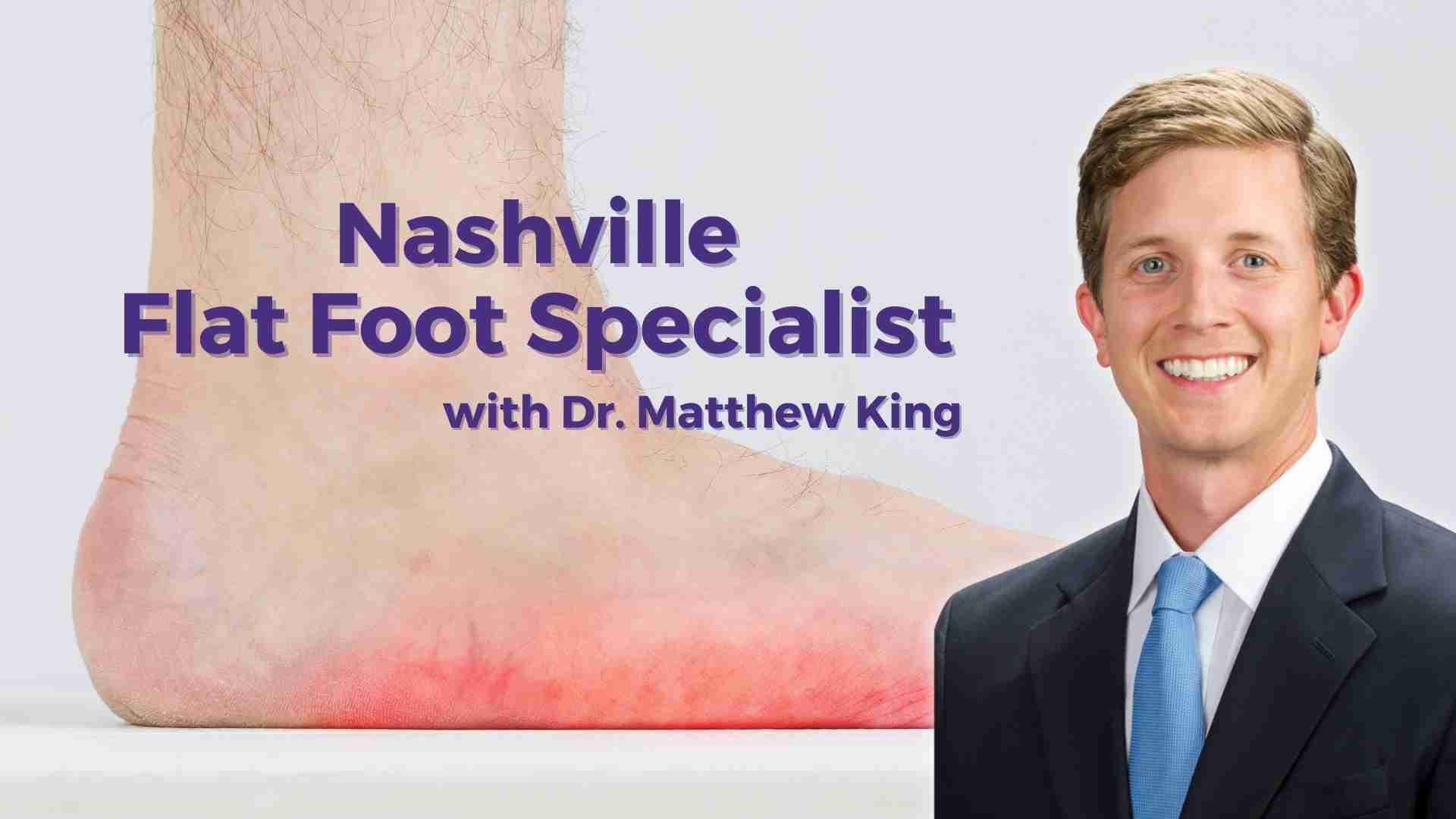
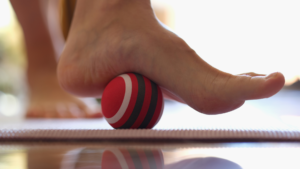
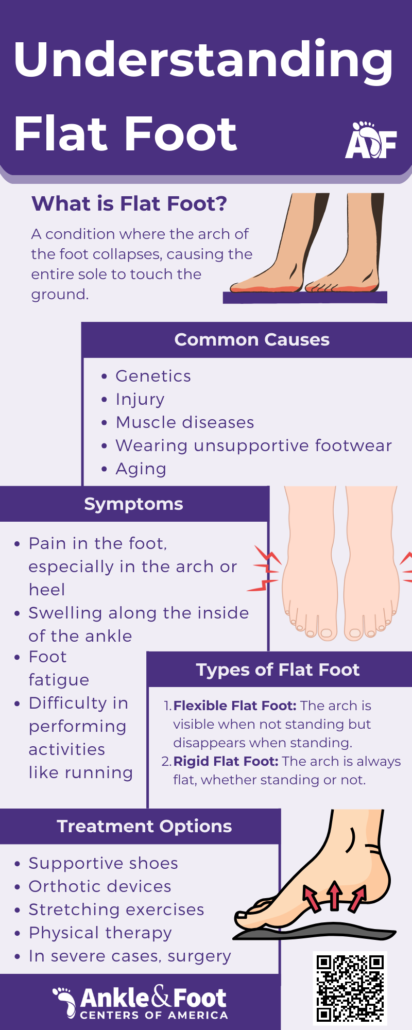
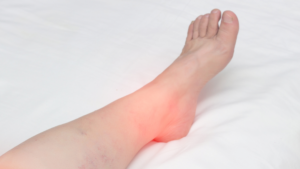 Biomechanical Assessments
Biomechanical Assessments